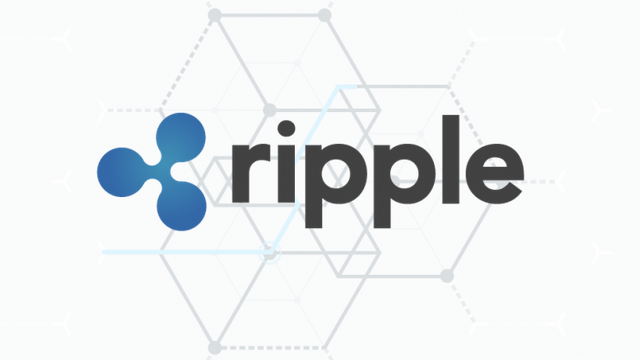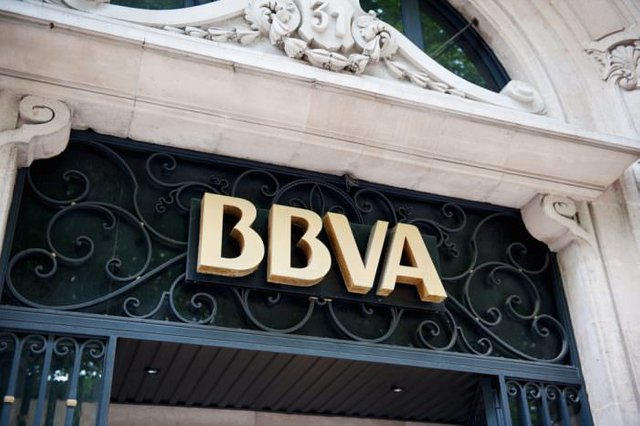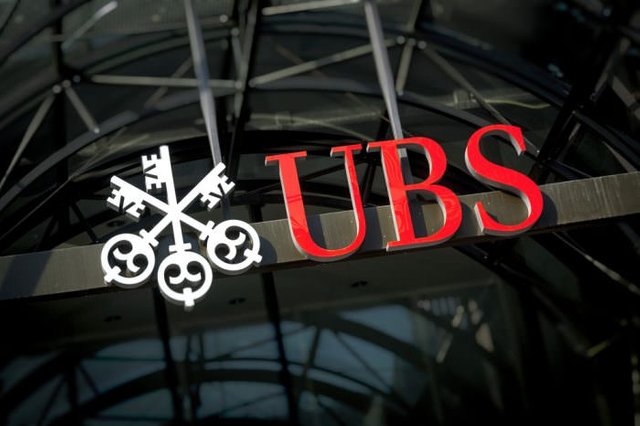Retail, commercial and investment banking to use blockchain
With a seemingly never-ending stream of partnerships between banking consortiums and blockchain firms being touted, the distributed ledger technology promises to transform the banking industry as we know it.
Projects are typically still in the trial stages, as banks test different formats to pinpoint the ideal blockchain recipe for their needs. Once much of this initial test phase is complete, probably within the next five years, we should see one or two winning blockchain models emerge, laying the foundations for an industry standard.
Encouraged by the prospect of being able to significantly reduce costs and improve services for their customers, mainstream banks have become increasingly convinced that blockchain technology holds the key to the industry’s future.
Precious information
Blockchain describes a data structure that facilitates the creation of a digital ledger of transactions that can be shared across a wide network of computers. Participants in the network can update the ledger securely, without having to resort to a central authority. Multiple parties can share access to the same data on the ledger, almost simultaneously.
In an industry where services and products are invisible, being able to effortlessly manipulate information in a secure way is everything.
“Banks are leading the way because the technology they are building is already scalable, meaning it will be commercially useful within the next five years,” says Shidan Gouran, chief executive at blockchain investment firm Global Blockchain.
blockchain and banking

Blockchain has the potential to simplify and speed up numerous banking activities
Banking activities
While we should soon see at least one or two winners emerge as leaders in select applications, the process of blockchain experimentation in banking is unlikely to end there.
This is because the applications for blockchain technology are so wide. Banks are therefore focusing on getting some important ones right first, before they move on to the outliers.
There’s also the different types of banking operations and their varying needs to consider.
Retail banking: traditionally focuses on the man in the street, though the major players in this area have been increasingly targeting their efforts online as ordinary customers transact more through the Internet
Commercial banking: bespoke services offered to companies
Investment banks: offer a myriad of other investment related services, helping firms and other organisations to raise capital.
In short, blockchain has the potential to simplify and speed up numerous banking activities, across a range of business areas, cutting down on cumbersome paperwork.
Payments
Contrasting traditional cross-border payment methods such as SWIFT with alternative blockchain payment methods easily illustrates some of the huge operational and cost advantages afforded by the new technology.
Blockchain means international transactions that have previously taken a few days to settle can now be completed instantly, and at a fraction of the usual cost.
Ripple has been at the forefront of the blockchain push into the banking sector, having announced numerous partnerships
between itself and financial services firms.
Last October, Ripple revealed it had reached the milestone of signing 100 financial institutions to RippleNet, its cross-border payments solution.
RippleNet connects banks and payments providers around the world, enabling them to make frictionless transactions across the network. Users can send payments in traditional fiat currencies such as the US dollar through RippleNet, a major draw for big, mainstream banks.

Ripple has been at the forefront of the blockchain push into the banking sector Source: Ripple
Trade finance
Spain-listed banking giant Santander has been among the early pioneers of RippleNet, but it is by no means limiting itself to collaboration with Ripple in its pursuit of blockchain solutions.
Typical of the general approach to blockchain technology being adopted by an increasing number of big players in the banking sector, Santander is involved in other initiatives along with rival banks, as it strives to find the best blockchain formula for its diverse needs.
For instance, it’s also one of nine European banking groups to have signed up to the we.trade platform, with signatories including the likes of HSBC and Deutsche Bank.
We.trade announced in early July that it had completed the first live trades through its platform, which is built on IBM’s blockchain technology. We.trade uses smart, digital contracts to replace the lengthy trail of paperwork traditionally needed to facilitate international trade finance.
In early July, it reported that 10 companies had executed trades via four of the banks currently using the platform.

We.trade focuses on the trade finance segment Source: we.trade
In April, UBS announced that its Batavia trade finance platform, also based on IBM technology, had completed the first transactions for corporate clients, involving car sales from Germany to Spain and materials for textiles from Austria to Spain.
Trade finance is an obvious area for blockchain-led improvements as it is one that has been traditionally heavy on paper work.
Clearing and settlement
The clearing and settlement of transactions is complex, with investment banks requiring a multitude of corresponding records to be created.
A recent study by consulting firm Accenture of eight investment banks suggested they could collectively save as much as $10bn per year in costs through blockchain, assuming an annual cost reduction of as much as 30%. This is modelled on potential cost savings for investment banks across front, middle and back office functions.
Astoundingly, the report points to potential cost savings of 70% in functions such as central finance reporting, highlighting benefits such as “more streamlined and optimized data quality.”
“Given predictions of material cost savings, it’s no surprise that spending on blockchain in the financial services sector is accelerating,” said the authors of the Accenture report.
Loans
In April, Spanish banking group BBVA claimed to have become the first bank to issue a corporate loan using blockchain, from negotiating terms to signing the loan agreement.
In June, it announced it was working with Spain-listed energy group Repsol to develop blockchain solutions. BBVA revealed it had transferred a credit facility of €325m via blockchain.
The technology is also likely to be an ideal way of boosting efficiency for the process of creating syndicated loans. These tend to be more complicated than straightforward corporate loans as they involve multiple lenders working together to provide funds to a single borrower.
A solution for the syndicated loan market called Fusion LenderComm recently went live on R3’s Corda blockchain platform. It enables the banks involved to easily share information on loans, including credit agreements and other transaction data.

Spain-based BBVA claimed to have become the first bank to issue a corporate loan using blockchain
KYC – know your customer
Know Your Customer (“KYC”) rules tend to slow down transactions as banks must be able to show regulators they have taken appropriate steps to verify the identities of customers. Such rules are designed to prevent criminals from using financial products to move money around the world.
Regulators will impose significant fines on banks that fail to follow these rules properly. While costly, there is also substantial duplication of effort by banks as they follow KYC procedures for customers and counterparties. Blockchain is being increasingly seen as an ideal way for banks to share such information in a secure way.
Some 39 financial services firms recently partnered with R3 to complete more than 300 transactions through the blockchain consortium’s KYC application.
Goldman Sachs has projected billions of dollars in savings for the banking sector as a result of applying blockchain to KYC. The investment bank believes the technology will substantially reduce fines as KYC becomes more fool-proof compared with traditional methods.
Most of the savings though are expected to come from job cuts; blockchain technology creates a much-streamlined KYC process, requiring far fewer man hours.
Security
Banks have also been exploring how blockchain technology could reduce fraud.
In the past, banks have been susceptible to fraud as much of their information is held within centralized databases. The decentralized nature of blockchain means banks should be less exposed to cyberattacks.
“There is no central administrator or centralized version, so there is no single point of failure. Instead, management and authorization is spread across the network, so there is no obvious place for someone to instigate a fraud scheme,” says Ross Mauri, general manager for IBM Z.
At the same time, blockchain’s transparent nature, should make it easier for banks to prevent fraud. Once new blocks are added to the ledger they cannot be changed. Meanwhile, attempts to make false entries should be relatively obvious to detect given blockchain’s transparent nature.
“Though you can create a new transaction to change the state of an asset, it will simply be added to the chain, and the original record will still be accessible. So, by using blockchain you can see the provenance of an asset, including where it came from, where it’s been, and who’s had ownership of it,” adds Mauri.

IBM claims blockchain could reduce fraud
Awakening
There’s been both a shift in opinion and an increasing awakening within the banking industry regarding the huge potential offered by blockchain technology.
Many leading figures within the banking industry previously expressed scepticism about the role of cryptocurrencies. However, this scepticism was more than matched by growing enthusiasm for the underlying technology behind cryptocurrencies.
Banks also realised they couldn’t ignore the technology because it could ultimately pose an existential threat to their business models. At the same time, not all bankers were equally as sceptical about the prospects for bitcoin and the other major cryptos.
Digital coins
Last year, J.P. Morgan Chase chief executive Jamie Dimon labelled bitcoin a “fraud”, though he later claimed to regret making the claim.
Meanwhile, other major banks were already well advanced in furthering the development of UBS’ digital coin concept, its so-called utility settlement coin (USC).
USC is described as a blockchain-based, asset-backed digital cash instrument intended for use by institutions operating in global financial markets. There will be a version of USC in each of the major world currencies, including the likes of the US dollar, euro, British pound and Swiss franc.
Along with UBS, early pioneers behind the project included the likes of Deutsche Bank, Santander and BNY Mellon. These banks believe USC could ultimately become the digital cash industry standard, enabling them to efficiently clear and settle financial trades through blockchain technology.

UBS has developed a digital coin concept in partnership with other banks
Blockchain solutions
As big banks keep their options open in pursuit of blockchain solutions, it’s conceivable that offerings from different blockchain firms focused on the varying needs of banks and payments providers could thrive alongside each other.
For example, Ripple may become the leader in providing blockchain solutions for remittance providers such as MoneyGram, which helps ordinary people send money across the world. Then there are products such as Ripple’s xCurrent solution, which enables banks to move money internationally between bank accounts.
So, even if we.trade becomes the leading solution for trade finance, Ripple could yet be the leading provider of solutions in other areas of banking and financial services.
Not only are their quite different types of banking players interested in the technology, from more retail focused groups such as Santander to investment banks such as UBS, there are also the various uses and benefits to consider across different business functions within banking.
Implications
Blockchain could easily become the most important technological change for the banking sector since the advent of the Internet.
Shidan Gouran puts blockchain at about the same stage of development today as the Internet was in 1993. In addition to all the cost advantages, there’s the real prospect of significant improvement in service delivery for clients.
Blockchain’s innate characteristics serve to speed everything up, at the same time as improving security.
The initial scepticism around cryptocurrencies and the focus on the underlying blockchain technology doesn’t mean the banking industry has turned its back on digital coins either.
As blockchain technology becomes increasingly imbedded across the banking industry, the big banks are likely to view digital coins as more of an opportunity than as a threat, especially if they can integrate them into aspects of their business models, as a compliment to their current offerings.
However, rather than pushing cryptos such as bitcoin into the mainstream, the banks like to collaborate with each other to develop their own alternatives.
As with the banks’ efforts across blockchain technology in general, they often prefer to work together to develop industry standards in certain areas, instead of trying to adopt ready-made solutions.
Text by James Hester
Source: https://dex.openledger.io/retail-commercial-and-investment-banking-to-use-blockchain/
Follow OpenLedger!